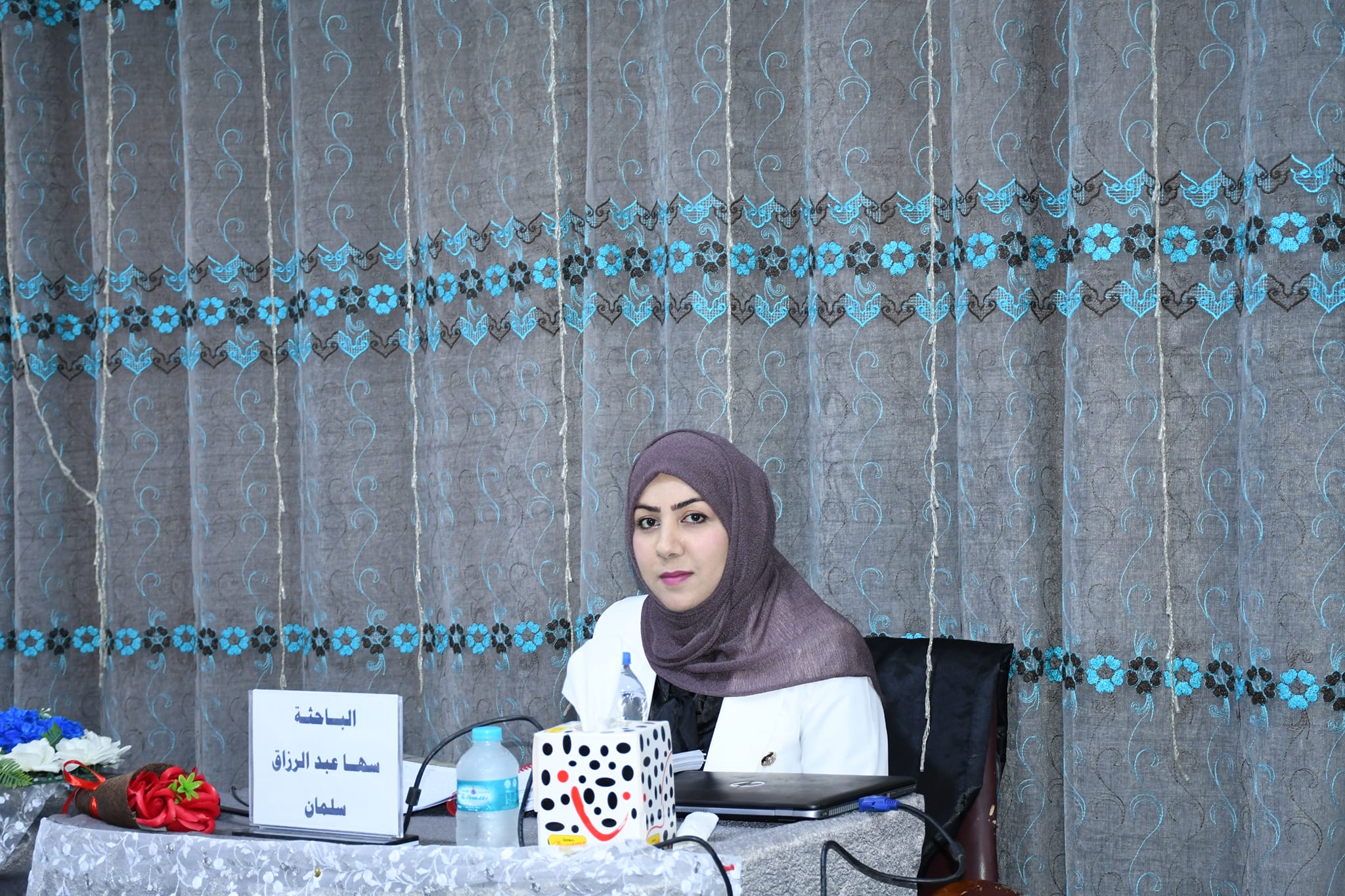
The College of Education for Pure Sciences in the Department of Life Sciences at the University of Basra discussed a master’s thesis on the study of some biomarkers in obese women who suffer from fertility disorders
The message presented by the researcher (Suha Abdel-Razzaq Salman) included
This study was designed to identify some of the physiological causes that negatively affect the fertility of women who are overweight or obese. 64 out of 86 overweight or obese female volunteers participated in this study, and 22 fertile obese women as a control group. All samples were divided according to age into two groups (19-29) and (30-40), the first age group included (16) samples with polycystic ovary syndrome and (21) samples with endometriosis, while the second age group included (12) samples for polycystic ovary syndrome and (15) samples for endometriosis. The study was conducted for the period from August 2020 to February of 2021, and samples of all patients were obtained from gynecological consultations at Ibn Ghazwan Hospital for Child and Childbirth and from the Infertility and IVF Center after being diagnosed by the specialized doctor.
Patient samples (64 samples) were divided into two groups, one of which includes samples infected with PCOS (28) and the other includes women with endometriosis (36), and patient samples (64 samples) were divided into two groups according to the type of infertility, the primary (15). ) and secondary (49)
The study aimed to:
Estimation of the level of some sex hormones related to the state of fertility in the blood serum of both healthy and sick people.
Estimation of the level of leptin hormone related to obesity and its effect on causing infertility.
Relationship of the effect of body mass index on fertility status.
Study of the relationship between infertility and oxidative stress.
A study of some physiological parameters (SHBG, TNF-α) and their relationship to infertility.
The results for all patient samples of the two groups with endometriosis and PCOS showed no significant differences in the BMI value compared to the control group.
The results also showed that the incidence of PCOS for the age group 19-29 was 64% compared to the case of endometriosis and the rate of 58%, while the rate of endometriosis in the age group 30-40 was 42% compared to the case of PCOS and the rate of 36% . The secondary infertility in the age group 19-29 was 78% compared to the primary infertility by 22%, and the secondary infertility in the 30-40 age group was 74% compared to the primary infertility by 26%.
The results showed a significant increase in the levels of estrogen, follicle-stimulating hormone, leptin, sex hormone-binding protein, TNF-alpha and malondialdehyde compared to the control group. While the level of testosterone, luteinizing hormone and ovarian stock hormone decreased significantly. As for progesterone, the results did not show a significant difference.
The results also showed a significant increase in the levels of the hormones testosterone, LH, AMH, and leptin, as well as a significant increase in the level of TNF-α and MDA compared to the control group. The level of estrogen, progesterone, FSH and SHBG protein was significantly decreased compared to the control group.
The results did not show significant differences in the levels of testosterone, estrogen, progesterone, FSH, LH, AMH and SHBG protein among infertile women of both types, primary and secondary, compared to the control group, while the level of leptin, TNF-alpha and MDA increased in the two groups compared to the control group.
The study concluded
Polycystic ovary syndrome formed the highest percentage in ages less than 30 years, while endometriosis had the highest percentage in ages over 30 years.
Primary infertility was the highest percentage in the age group above 30 years, while secondary infertility was the highest in the age group less than 30 years.
Most cases of primary infertility suffer from endometriosis, while PCOS was the most common cause of secondary infertility.
Disorders in the level of sex hormones and nutrients to the gonads play a major role in causing pathological conditions that lead to infertility of all kinds.
One of the causes of infertility or fertility disorders is immune factors and the occurrence of infections.
Leptin is a predictive factor for fertility disorders and infertility because it is the link between fat tissue and the reproductive system.
study recommended
Molecular study of some genes that may cause infertility or fertility disorders.
Immunological study of some inflammatory factors and their role in the occurrence of fertility disorders.
A physiological study of other pathological conditions that cause infertility, such as uterine fibrosis and unexplained infertility.
A physiological study of the causes of infertility or infertility in men at an early age.








